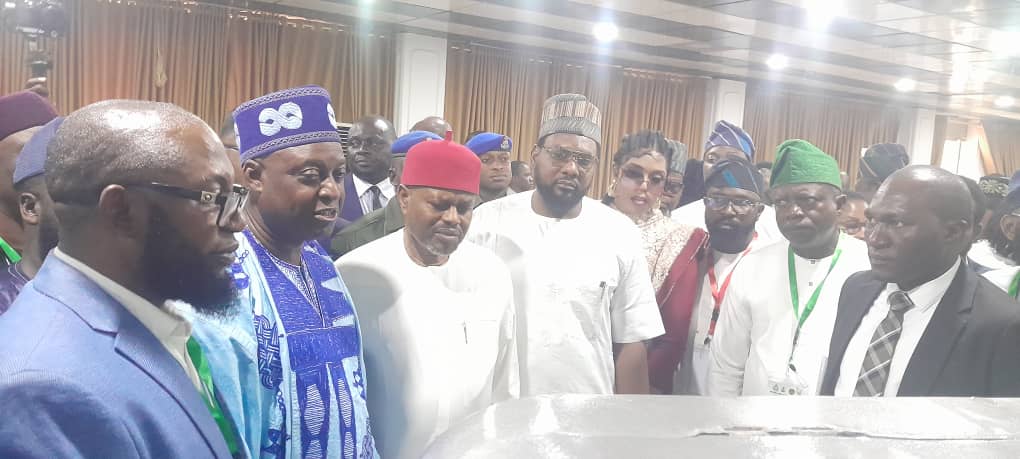Trump Widens Trade War With 50% Copper Tariff, Threatens 200% Duties on Drugs and More Tariff Hikes
President Donald Trump on Tuesday escalated his global trade offensive, announcing a 50% tariff on imported copper and revealing plans for steep new duties on semiconductors and pharmaceuticals, as his administration pushes ahead with what he calls a campaign to “collect money” from countries “ripping us off.”
During a cabinet meeting at the White House, Trump said the US could also soon impose 200% tariffs on imported drugs, although implementation could be delayed by a year.
Meanwhile, a flurry of tariff notices, at least seven more expected Wednesday, is set to target additional goods from dozens of countries.
The moves add to an already volatile global trade climate. Markets were rattled, with US copper futures spiking over 10%, while pharmaceutical stocks fell sharply on fears of increased import costs and industry disruption.
Trump also reiterated his threat of 10% tariffs on goods from BRICS nations, including Brazil and India, after issuing fresh warning letters to 14 key trade partners like Japan and South Korea.
Although he said trade talks with China and the EU were going well, he hinted that the EU should expect its own tariff notice within days.
“It’s about time the United States of America started collecting money from countries that were ripping us off,” Trump declared. “They were laughing behind our back at how stupid we were.”
The administration had initially promised “90 deals in 90 days” after launching the latest tariff wave in April. So far, only two agreements with the UK and Vietnam have been finalised. A deal with India is reportedly close.
The new copper tariffs aimed at a material critical to electric vehicles, military hardware, and infrastructure follow earlier tariffs on steel, aluminum, and automobiles. Trump gave no specific timeline for when the copper or drug tariffs would take effect.
The Yale Budget Lab estimates that the effective US tariff rate has now risen to 17.6%, up from 15.8%, making it the highest rate since 1934.
Treasury Secretary Scott Bessent said the US has collected $100 billion in tariff revenue so far in 2025, with projections of $300 billion by year-end if Trump’s trade plans proceed.
“The big money will start coming in on August 1,” Trump said, referencing the next round of universal 10% tariffs and country-specific increases.
Global trade partners are scrambling to respond. The European Union, the US’s largest trading partner, is racing to strike a deal before the August 1 deadline, offering possible concessions for aircraft, medical equipment, and spirits, while seeking protections for EU carmakers operating in the US.
But German Finance Minister Lars Klingbeil warned of retaliation”If we don’t reach a fair trade deal with the US, the EU is ready to take countermeasures.”
Japan, which faces a 25% tariff, is pushing for an agreement that shields its powerful automobile sector. South Korea, also targeted for 25% duties, said it would “intensify” talks in hopes of avoiding severe penalties.
Country-Specific Tariff Threats-Trump listed the following new or increased tariffs coming for specific nations, 25% tariffs- Tunisia, Malaysia, Kazakhstan, 30% tariffs-South Africa, Bosnia and Herzegovina, 32% tariffs- Indonesia, 35% tariffs- Serbia, Bangladesh, 36% tariffs- Cambodia, Thailand, 40% tariffs- Laos, Myanmar
Trump said relations with China were improving, referencing recent talks with President Xi Jinping and a tentative trade framework agreed in June.
However, with an August 12 deadline approaching, uncertainty remains over whether a lasting deal can be reached or if the tariff war will deepen.
“We have had a really good relationship with China lately,” Trump said. “They’ve been very fair on our trade deal, honestly.”
Despite Trump’s optimism, economists warn the lack of predictability in the US tariff rollout coupled with the sheer scope of proposed duties is deepening market volatility and straining international relations at a critical time for global economic recovery.
Erizia Rubyjeana
Follow us on:
You may also like...
Diddy's Legal Troubles & Racketeering Trial

Music mogul Sean 'Diddy' Combs was acquitted of sex trafficking and racketeering charges but convicted on transportation...
Thomas Partey Faces Rape & Sexual Assault Charges

Former Arsenal midfielder Thomas Partey has been formally charged with multiple counts of rape and sexual assault by UK ...
Nigeria Universities Changes Admission Policies

JAMB has clarified its admission policies, rectifying a student's status, reiterating the necessity of its Central Admis...
Ghana's Economic Reforms & Gold Sector Initiatives

Ghana is undertaking a comprehensive economic overhaul with President John Dramani Mahama's 24-Hour Economy and Accelera...
WAFCON 2024 African Women's Football Tournament

The 2024 Women's Africa Cup of Nations opened with thrilling matches, seeing Nigeria's Super Falcons secure a dominant 3...
Emergence & Dynamics of Nigeria's ADC Coalition

A new opposition coalition, led by the African Democratic Congress (ADC), is emerging to challenge President Bola Ahmed ...
Demise of Olubadan of Ibadanland
Oba Owolabi Olakulehin, the 43rd Olubadan of Ibadanland, has died at 90, concluding a life of distinguished service in t...
Death of Nigerian Goalkeeping Legend Peter Rufai

Nigerian football mourns the death of legendary Super Eagles goalkeeper Peter Rufai, who passed away at 61. Known as 'Do...




